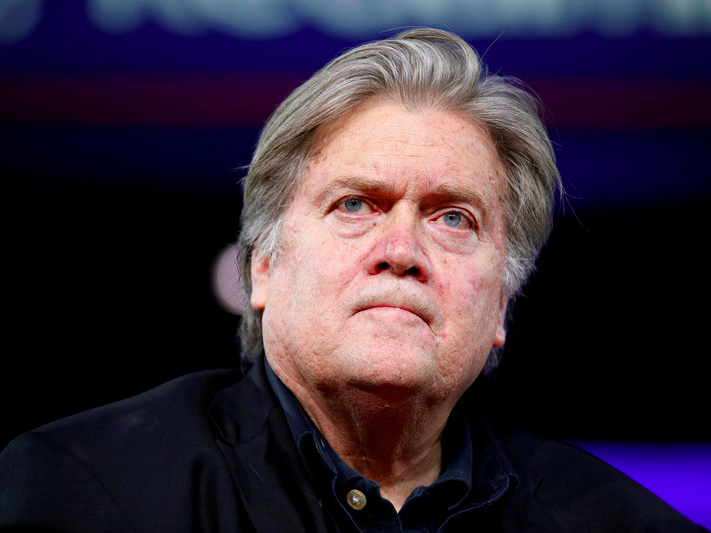Former White House adviser Steve Bannon gave a speech in Hong Kong on Tuesday, and many were surprised at the positive tone he took about China and its government, despite the fact that he’s said the US is at “economic war” with the country.
They shouldn’t be surprised, though, because the only thing Bannon likes almost as much as nationalism is authoritarian central economic planning.
In the speech Bannon said that the US is at economic war with other “mercantilist” countries like Japan, South Korea and China.
But he also said there was no leader in the world his old boss, President Trump, “admires” more than China’s President Xi Jinping. He cited a “special alliance and affinity” between the US and China “dating back to WWII.”
And here’s the most important line, according to Wei Du, a correspondent at Channel News Asia. Bannon said the “Chinese way of running their economic system is quite brilliant. I tip my hat to them.”
Oh.
China is an authoritarian country where free speech is suppressed, many large corporations are quasi-state owned, and the government can make powerful executives disappear for questioning whenever it wants. This has become especially apparent as the country's debt has mounted to over 300% of GDP and the economy has started to slow down. Massive companies that were allowed to make investments abroad are now being told to cancel deals. Wall Street is worrying. People who thought that China was gradually opening its economy and turning it into a free market now believe that it's moving in the opposite direction.
So the question is what does Bannon admire?
If Bannon had his druthers the US would be on an infrastructure building spree like the one that contributed substantially to China's debt burden - the ghost cities and bridges to nowhere. Recall his interview with the Hollywood Reporter
"I'm the guy pushing a trillion-dollar infrastructure plan," said Bannon. "With negative interest rates throughout the world, it's the greatest opportunity to rebuild everything. Ship yards, iron works, get them all jacked up. We're just going to throw it up against the wall and see if it sticks."
Some planning. At the time, I noted that international trade had been on the decline for the last five years, and shipbuilders were under intense pressure. South Korean and Chinese shipbuilders were going through a veritable collapse. But sure, more ships.
China can build things it doesn't need because the authoritarian government can give directives like "build, market be damned." The US has a market based system. That's not how we roll.
Now, to be fair to Bannon, there are parts of China's economy that the US should envy. The country's planners are laser focused on the resources of the future, especially technology and metals. They think about innovation as chess, not as checkers. It's not about making a product, it's about learning to dominate industries.
The problem is that American companies aren't doing the same thing. To them, margins and stock prices come first - then products. This has alarmed Reagan era officials like Michael Sekora, who ran Project Socrates, a Pentagon technology program that helped the US outmaneuver and overtake the USSR and end The Cold War. Short term, financial-based thinking, rather than longterm product and industry-based thinking, has American companies lagging behind, according to him.
So yes, Bannon and I agree that there's a problem, but we disagree about the solution. We don't have to be authoritarian or build ghost cities or start trade wars to change misguided thinking in corporate America. It starts with changing the way people think about products in the boardroom. Ultimately, longer term thinking would be enhanced, not hurt, by a more nimble free market economy.
Bannon and his ilk in the White House have shown disdain for democratic principles in the past - like that time Trump adviser Stephen Miller said that the President Trump "would not be questioned."
That kind of thinking has no place in the US. It, and Bannon, can stay in China if that's what he desires.

